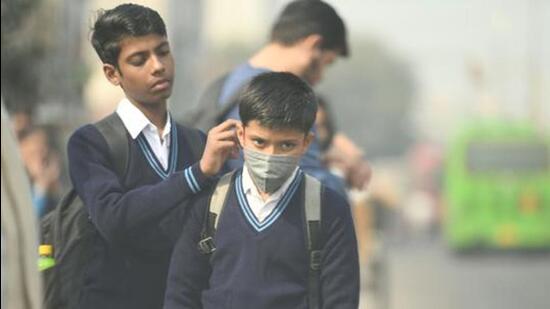To tackle air pollution, devise concrete, measurable time-bound targets
Economic incentives tied to pollution-based targets would allow for both an efficient allocation of NCAP funds for cities where there are active air quality policy implementations and would also additionally incentivise states to reach such targets in a time-bound manner
Dear Mrs Sitharaman,

We don’t need any more studies to underline the importance of clean air for a healthy population or to show that there is a positive correlation between polluted air and negative GDP growth. Recent studies in the United States have also linked high Covid-19 mortality rates to areas where population was exposed to higher particulate matter. India which has the dubious distinction of having 21 out of 30 most polluted cities in the world, we are still not serious about solving air crisis.
The National Clean Air Program (NCAP), the only centrally funded scheme that deals with air pollution, is badly formulated and grossly underfunded. After much delay, disbursement of funds started in November 2020. 231 cities with poor air quality, including Delhi, were left out and some of the smaller cities such as Shillong received ₹20 lakh, which is not even enough to buy one air quality monitor.
The war against pollution will need be led by the central government because air pollution does not recognise administrative boundaries. Take the case of Delhi. A recent study by the Centre for Science and Environment highlighted that Delhi’s internal contribution to pollution is 31% to the existing PM2.5 levels, the rest originated from the National Capital Region and surrounding areas. Every time Delhi takes stringent measures such as shutting polluting industries and power plants, higher tax for diesel vehicles, the city government loses revenue.
However, the air does not get any cleaner because the industries move to neighbouring cities/states and continue to pollute Delhi’s airshed. With Gurgaon, Ghaziabad and Faridabad featuring among the most polluted cities of India, the inaction by governments of NCR districts and Commission for Air Quality Management’s (CAQM) inefficiency in ensuring that states are bound to specific time-bound targets, has nullified Delhi government’s efforts in addressing air quality levels in Delhi and providing its citizens with a better measure of life.
Similarly, although industrial pollution within Delhi has gone down from 16% in 2016 to 2.5% in 2019 as a result of measures taken by the Delhi government to either shut down or encourage adoption of cleaner fuels, just a few kilometers from Delhi’s border, industrial clusters in Faridabad, Narela, Sahibabad consisting of most polluting smelters, and tanneries continue to operate with limited regulations resulting in toxic emissions. A regional approach where states only look at air quality within their administrative boundaries is bound to fail, while adopting an airshed approach will go a long way in helping improve air quality levels for the NCR region.
We need to take a regional airshed approach, further elaborating the NCR example - a body like CAQM would need to formulate a 10-year plan for the NCR area. This plan should have specific annual targets for each of the cities in the airshed. For example, if Delhi were to reduce its particulate matter by XX micro grams in a year, then Delhi would get additional funds of XX crore. At the same time, if Delhi misses the target, then Delhi would be penalized by XX crore.
Unless we have concrete, measurable time-bound targets, we will continue to ruin the lungs of our children. The much-acclaimed China model for pollution mitigation was successful due to region-wise emission-reduction targets evolved for its most polluted regions, where each city was given long and short-term targets to reduce particulate matter concentrations, with best performing cities rewarded with additional budgetary allocations. This is no different than the concept of social bonds as a financial tool that is being used world over to address or mitigate a specific social issue and seek to achieve positive social outcomes.
Economic incentives tied to pollution-based targets would allow for both an efficient allocation of NCAP funds for cities where there are active air quality policy implementations and would also additionally incentivise states to reach such targets in a time-bound manner.
We should give up our dream of double digit GDP growth or of becoming a superpower if a large percentage of our future generations are growing up in areas with toxic air.
Reena Gupta is an adviser with the Delhi government
The views expressed are personal





